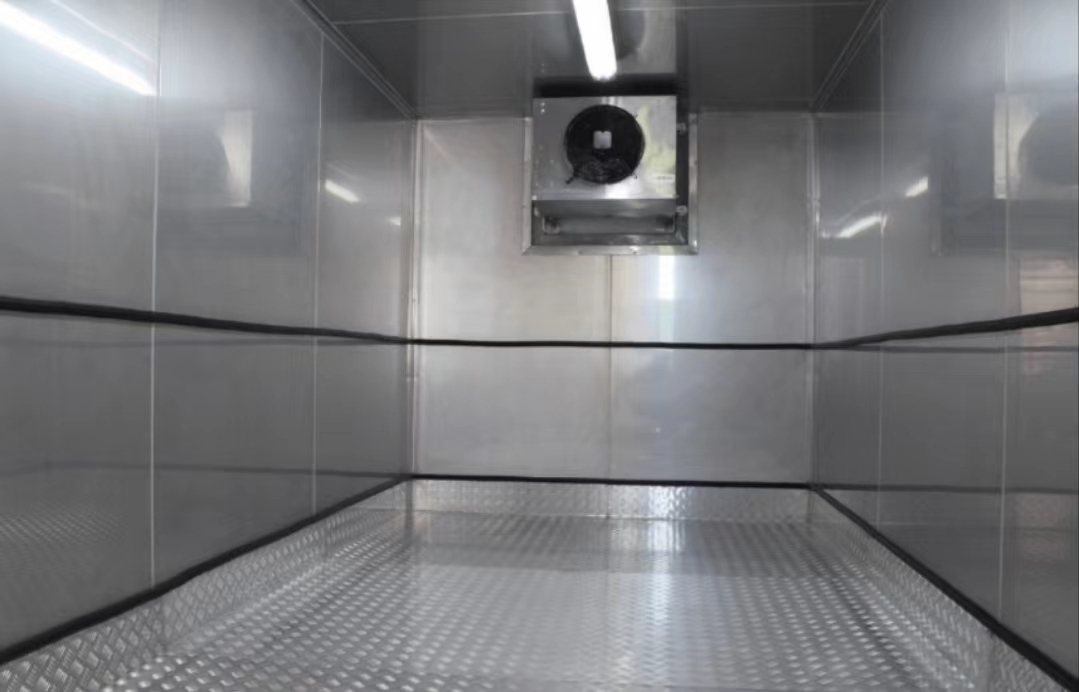Different Types of Cold Rooms: A Comprehensive Guide to Types, Purposes and Benefits
Refrigerated environments like cold rooms have long been considered essential tools in various industries. Cold rooms are crucial for the smooth running of these industries, from cooling products and processes to perishable products and keeping processes operating optimally.
For instance, chilled storage rooms are ideal for dairy products and vegetables as they are above freezing point but below room temperature. Likewise, blast freezers are great for food companies as they immediately freeze food products, preventing spoilage.
Cold rooms are essential in protecting product integrity while optimizing operational efficiency. In this exploration, we look at various types of cold rooms, their uses, and how these contribute to industry success.
The Best Types of Cold Room
Cold rooms (commonly referred to as walk-in refrigerators or freezers) are temperature-controlled storage units. These cold rooms are designed for various industries where maintaining specific temperatures is vital to protecting goods or enabling processes.
Chilled Storage Rooms
Chilled storage rooms maintain temperatures above freezing but below room temperature. These store perishable products that require an environment controlled to increase shelf life, such as fruits, vegetables, dairy products or pharmaceuticals.
Freezer Rooms
By contrast, freezer rooms are designed to maintain temperatures below freezing. They are ideal for storing frozen food, such as ice cream, that requires subzero temperatures to remain intact. Freezer rooms are also great for other products that require sub-zero conditions to remain viable in the food and beverage industry.
Blast Freezers
Blast freezers are specially for rapid freezing. Food companies commonly employ them to quickly freeze fresh produce without producing ice crystals and preserve product quality.
Modular Cold Rooms
Modular cold rooms provide versatility in design and size. Customizable to meet specific spatial requirements, industries where space utilization is essential, such as pharmaceuticals or research laboratories, utilize these modular cold rooms.
Controlled Atmosphere (CA) Rooms
CA rooms allow for precise control over temperature, humidity and gas composition. Industries like horticulture often CA rooms to store fruits and vegetables longer before spoilage occurs.

Purposes of Cold Rooms
Your industry determines which cold room you should build. Typically, companies in the food and pharmaceutical industries require cold rooms to preserve food produce and pharmaceutical products.
Food Storage and Preservation
Cold rooms protect product freshness and quality for food and beverage businesses. They help to extend the shelf lives of perishable items by preventing spoilage and prolonging shelf life.
Pharmaceutical Storage
Pharmaceutical products require specific temperature conditions to remain effective. This makes cold rooms with precise temperature controls an invaluable way of safely storing medications, vaccines and other temperature-sensitive pharmaceutical products.
Research and Laboratories
In scientific research and laboratories, controlled environments are essential. Modular cold rooms and controlled atmosphere rooms offer ideal settings for storing samples, chemicals and other materials requiring specific temperature and humidity conditions.
Floral Preservation
Florists and nurseries use cold rooms to extend the freshness of flowers and plants for longer. By delaying their aging process, cut flowers remain vibrant and attractive for longer.
Benefits of Cold Rooms
Different types of cold rooms have their benefits. Cold rooms are a must-have for industries like pharmaceuticals with strict regulations for storage conditions.
Preserving Product Quality
Cold rooms are pivotal in maintaining product quality by providing optimal temperatures and humidity levels that help ward off deterioration processes, ensuring products reach consumers in optimal condition.
Energy Efficiency
Modern cold rooms today are designed with energy efficiency in mind. Utilizing advanced insulation materials and temperature control systems, the designs of modern cold rooms in Ontario are built to be cost-effective by minimizing their energy use.
Customization and Flexibility
Businesses can easily customize cold rooms to meet their storage needs for each industry with different storage requirements. The flexibility and customization of these cold rooms are ideal for organizations with diverse storage space requirements. Additionally, adaptability makes these cold rooms especially beneficial.
Compliance with Regulations/Standards
Industries such as pharmaceuticals and food must adhere to stringent regulatory requirements regarding storage conditions. Cold rooms equipped with precise temperature controls and monitoring systems help facilitate compliance with industry regulations and standards.
Reduced Waste and Losses
Cold rooms help businesses reduce waste and losses for business operations by prolonging shelf lives for perishable products. This is especially true within food industries, where spoilage can result in significant financial losses.
Leading Cold Room Contractor in Ontario
Cold rooms provide businesses like yours, in industries like food and pharmaceuticals with storage solutions that meet their exacting temperature needs, from research to horticulture. Understanding the different types of cold rooms, their purposes, and their benefits is essential when looking for efficient temperature-controlled storage solutions.
As technology advances, cold rooms become more sophisticated yet energy efficient. We have the technology and expertise to tailor your cold room needs specifically towards precise temperature regulation requirements, ultimately revolutionising your organization’s approach to temperature regulation and storage.
Can-Trol Environmental Systems is your trusted source for controlled environmental solutions. With 30+ years of excellence, we specialize in designing, manufacturing, and servicing environmental chambers.
As certified cold room builders, we offer turnkey HVAC, electrical, and more solutions. For reliable stability chambers, cold rooms, and beyond, contact us at 905-415-8141 or request a quote. Partner with Can-Trol Environmental, where expertise meets innovation in Ontario.
















































































































